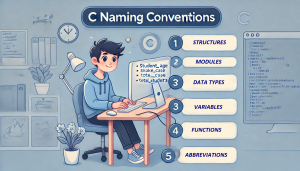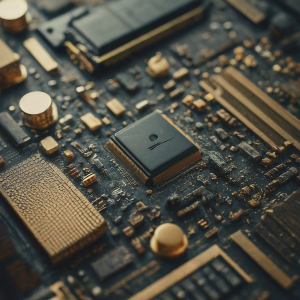Naming convention in C
In the world of C programming, the clarity and maintainability of your code often hinge on a seemingly simple yet crucial aspect: naming conventions. From variables to functions, constants to macros, the names you choose can significantly impact how easily others (and your future self) understand and work with your code. While the C language […]





